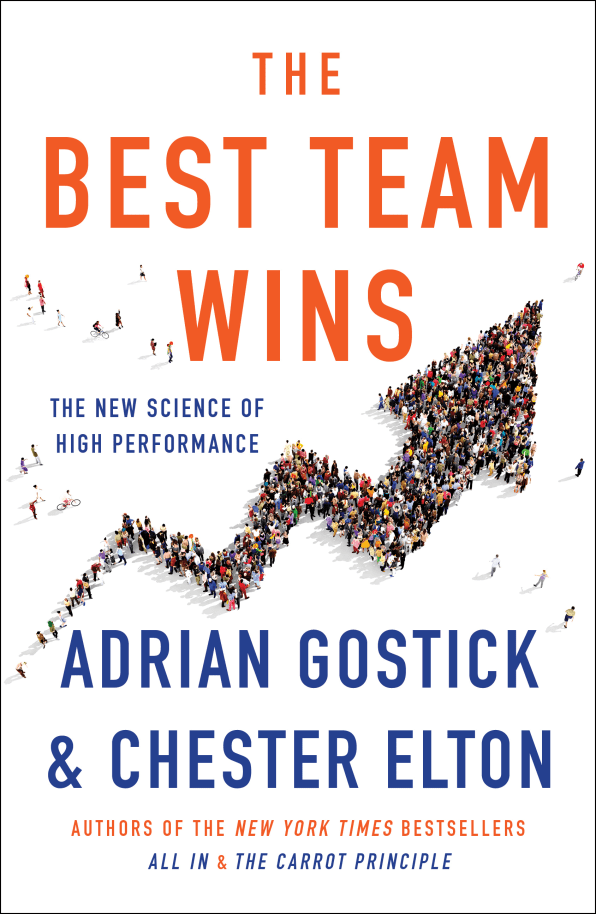#Leadership : #WorkPlace Evolution- Your #TeamMembers Need To Disagree More. Here’s How To Help Them…You Do Want Everyone to Get on Board with Whatever Decision they Ultimately Reach Together. You just Don’t Want that to Happen Right Away.
The most effective teams have regular, intense debates. The ability to disagree without causing offense is a crucial precondition for good communication and problem-solving. Yet whenever we ask the managers we speak with what they’d prefer–a team that’s almost always harmonious or one that has conflicts and arguments–the vast majority vote for the latter.
Not only is harmony overrated, but it undermines innovative thinking, particularly the kind that diverse work cultures are supposed to generate. Rather than encourage your team members to come to agreements quickly, effective managers do the reverse: They help their teams disagree–productively.
GROUND RULES FOR HEALTHY DEBATE
Teammates want the opportunity to challenge each other. As long as discussions are respectful and everyone gets a chance to contribute equally, most people thrive on this kind of debate, finding it not only intellectually stimulating but also helpful for unearthing the best solutions.
What’s more, teams typically feel more bonded and more effective when they have challenging discussions regularly, trading a wide range of ideas and perspectives. That’s even true when those debates get a little heated. After all, this is the whole point of diversity and inclusion–it’s about bringing in people whose points of view differ in order to spark new ideas and ways of looking at things. But facilitating these conversations takes some ground rules, like these:
- Treat each other with respect, and challenge the position, not the person.
- Listen to one another carefully before responding, and ask for clarification if needed. Gather facts; don’t jump to conclusions.
- Come to the debate ready to present facts and data, not suppositions.
- Do not compete to “win.” Debates are a chance to find and test the best ideas and to learn, not to score points.
- After the team makes a decision collaboratively, everyone needs to respect and support it, even if they have their own reservations.
Like this Article ? Share It ! You now can easily enjoy/follow/share Today our Award Winning Articles/Blogs with Now Over 2.5 Million Growing Participates Worldwide in our various Social Media formats below:
FSC LinkedIn Network: www.linkedin.com/in/fscnetwork
Facebook: http://www.facebook.com/pages/First-Sun-Consulting-LLC-Outplacement-Services/213542315355343?sk=wall
Google+: https://plus.google.com/115673713231115398101/posts?hl=en
Twitter: Follow us @ firstsunllc
Question: Want the ‘the best/current articles/blogs on the web’ on Job Search, Resume, Advancing/Changing your Career, or simply Managing People?
Answer: Simply go to our FSC Career Blog below & type(#career, #leadership, #life) in Blog Search: https://www.firstsun.com/fsc-career-blog/
What Skill Sets do You have to be ‘Sharpened’ ?
Continue of article:
SIX QUESTIONS FOR FACILITATING SMART DEBATES
Mark Beck is the CEO of JELD-WEN, a global window and door manufacturer with 20,000 employees. He believes it’s leaders’ jobs to step in and protect people when things get heated–which they sometimes still do, even after laying down solid guidelines.
In some cases, Beck says, he might take the side of a person whose view is under assault, even if he personally doesn’t necessarily agree with it. This isn’t gamesmanship, it’s to show that the person is offering up a reasonable way of thinking that should be respected. “The attacker usually steps back a little and softens their tone when a leader does that,” he told us.
And, Beck adds, managers must take the lead in getting everyone to participate by posing the right questions. Here are six great questions we’ve heard effective team leaders like Beck throw out in debates:
- That’s a good thought. Could you walk us through the process you went through to reach that conclusion?
- What rules should we be breaking here?
- What’s our biggest risk in this, and what’s our fallback position?’
- What if we did nothing at all–what would happen then?
- Are we missing or forgetting anything?
- Aside from earning us a profit, how would this decision change lives and make the world a better place?
Beck said that smart questions can encourage active debate when a team has plateaued or is stuck in a safe zone. At times of such inertia, he’ll tell his direct reports, “The only way you can get your topic on the management-team agenda is to frame it out as a question, and collectively we have to come up with an answer.”
CHANGING THE QUESTION
These six questions aren’t the end-all-be-all, though. Sometimes you need to reframe a question you’ve already asked and revisit it from a new angle.

When Beck arrived at JELD-WEN, the company’s focus was on getting ready to issue an initial public offering (IPO). He changed the question to, “How do we get ready to become a Fortune 500 company?” JELD-WEN did wind up issuing a very successful IPO in 2017, “but,” says Beck, “that’s been because we were focused on building a Fortune 500 company,” he said. “If we had just focused on the IPO and seen that as the finish line, I don’t think our story would have resonated with investors in the same way.”
And ironically enough, because his teams stick to respectful ground rules while they disagree, Beck estimates that they’re able to come to a consensus about 99% of the time. “If it’s done right, there’s usually no need for a leader to have to make a decision–it’s become obvious to everyone.”
And from there, Beck says, his job is actually pretty easy: “I might just say, ‘Let me summarize what I think we are all saying’.”
This article is adapted from The Best Team Wins: The New Science of High Performance by Adrian Gostick and Chester Elton. Copyright © 2018 by Gostick & Elton, IP, LLC. Reprinted by permission of Simon & Schuster, Inc.
FastCompany.com | March 5, 2018 | BY ADRIAN GOSTICK AND CHESTER ELTON 4 MINUTE READ



